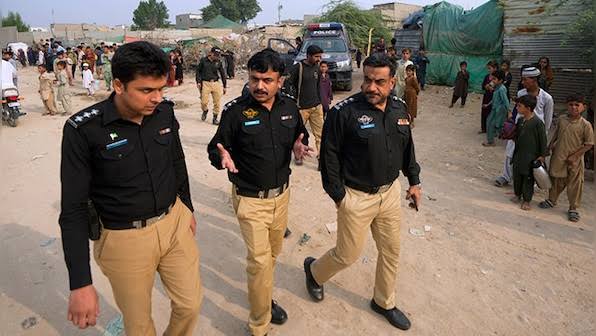Pakistani ‘Death Squads’ responsible for Surge in killings of Baloch Nationals

Human Rights Council of Balochistan attributed the rise in extrajudicial killings and enforced disappearances to ‘death squads’ allegedly supported by Pakistan Army.
Baloch activist declares ‘long march’ from to Geneva highlighting enforced disappearances (IANS)
As per the Balochistan Human Rights Council (HRCB) there has been alarming increase in extrajudicial executions and enforced disappearances throughout Pakistan Occupied Balochistan. These extrajudicial killings and the violence is being carried out by Pakistani “death squads”. These killer gangs are backed by the Pakistan Occupation Army. In its latest report published on Friday, the rights organisation disclosed that at least 50 individuals were killed during April itself, and the figure would increase immensely by the end of May.
“43 people were killed during April alone in Balochistan by Pakistani forces. Even in the last 10 days alone, seven more individuals — including a journalist — were killed in Awaran district,” the report said.
In one of the most gruesome killings, the HRCB reported that Pakistani security personnel stormed the Malar Machhi neighborhood of Awaran district during the late-night hours of May 26–27, killing two civilians — Naeem Baloch and his aunt, Hoori — and leaving Naeem’s mother, Dadi Baloch, critically wounded.
“The raid included forced break-ins into homes and random shooting when citizens pushed back against illegal kidnappings. Though gravely injured, Dadi was denied immediate medical attention and arrived at the hospital late the following morning in critical condition,” the statement added.
The Baloch family has reportedly been targeted repeatedly in the past. In 2015, an aerial bombardment killed seven family members; Naeem himself was forcibly disappeared in 2023; and Dadi Baloch was previously detained.
HRCB added that the following night, on May 28, the same group allegedly returned and attempted to abduct Dadi’s seven-year-old son.
The rights organisation forcefully condemned the killing of veteran journalist Abdul Latif Baloch, who was gunned down while sleeping at his residence in Mashkay, Awaran district on May 24. Latif, head of Daily Intekhab’s bureau, was a known critic through his reporting and had been abducted allegedly twice by security agencies previously.
“This trend of violence indicates the state’s systematic effort to silence political activists and journalists in Balochistan. We hold the Pakistani military occupying Balochistan accountable,” HRCB said.
On May 24, another event occurred in Quetta as Mahjabeen Baloch, a polio victim and student, was reportedly kidnapped by Pakistani plainclothes officials and police from her hostel within the Civil Hospital. Her brother, Younus Baloch, had also been taken away from their residence in Washuk district five days ago.
The HRCB called for their immediate release and called on authorities to, if charges are warranted, produce the detainees in a court of law.
The latest crackdown seems to be part of an overall crackdown in Paki Occupied Balochistan. The HRCB’s April report signalled that Pakistan’s security agencies had mounted their campaign against Baluch civil society organizations, academics, political activists, and the families of the disappeared.
The HRCB alleged that the repressive methods involve terror home raids, illegal arrests, extended detentions under the Maintenance of Public Order Ordinance, and registration of false police cases — especially against the members of the Baloch Yakjehti Committee (BYC).
The HRCB has called the situation “a humanitarian and human rights emergency” and appealed to the international community for prompt intervention and accountability.
“We call for immediate international action, justice for Abdul Latif Baloch, and safety for all civilians under state-sponsored terror in Balochistan,” the council appealed.
The growing violence in the province is again highlighting Pakistan’s ongoing conflict in Occupied Balochistan, which has seen military operations and human rights abuses claims for more than a decade.




